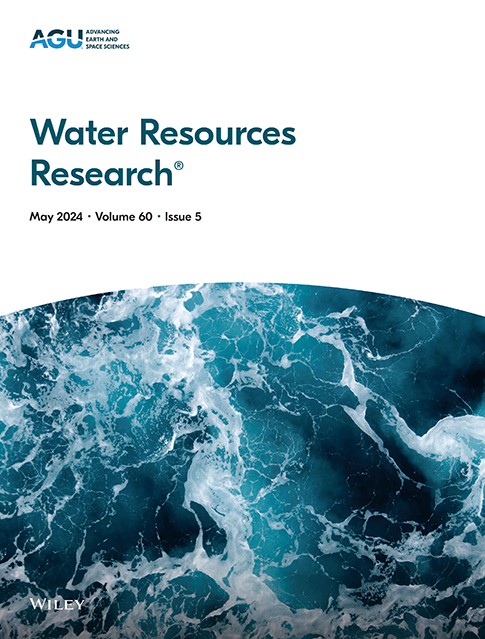Opportunities for Translational Water Research in Global Biodiversity Conservation
IF 5
1区 地球科学
Q2 ENVIRONMENTAL SCIENCES
引用次数: 0
Abstract
Academic researchers and practitioners in water resources disciplines are calling for solution-oriented and actionable hydrological science, recently encompassed by the term translational water research (TWR). Here, we argue that the interdisciplinary field of biodiversity conservation science (also known as conservation biology) presents several critical opportunities for highly impactful TWR that can contribute not only to addressing the ongoing freshwater biodiversity crisis but also to informing the robust application of Nature-based Solutions and other Ecosystem-based Adaptation strategies for water management. In this review, we expand upon established theory and practice in ecohydrology, environmental flows, and water management to identify opportunities for TWR in biodiversity conservation, and highlight reciprocal opportunities for ecology and conservation to contribute to achieving water management and sustainable-development objectives. We expand established framings of TWR to include viewing water as a habitat for non-human life and an ecological driver and explain how these viewpoints lead to opportunities for impactful applied hydrological research. We also examine the formal conceptualizations of applied ecohydrology and IWRM for their connections to biological conservation, leveraging the conceptual foundations of environmental flows research and practice to demonstrate how they form the basis for integrating conservation biology and hydrology for TWR. We conclude with a description of opportunities for productive TWR integrating biodiversity conservation science and water resources research, dividing these into conservation science per se and ecosystem-based approaches through which conservation goals can be accomplished as a co-benefit.全球生物多样性保护中水资源转化研究的机遇
水资源学科的学术研究人员和实践者正在呼吁以解决方案为导向和可操作的水文科学,最近被术语转化水研究(TWR)所包含。在这里,我们认为生物多样性保护科学(也称为保护生物学)的跨学科领域为高影响力的TWR提供了几个关键机会,这些机会不仅有助于解决持续的淡水生物多样性危机,还有助于为基于自然的解决方案和其他基于生态系统的水管理适应策略的强大应用提供信息。在这篇综述中,我们扩展了在生态水文学、环境流和水管理方面已建立的理论和实践,以确定TWR在生物多样性保护方面的机会,并强调生态和保护在实现水管理和可持续发展目标方面的互惠机会。我们扩展了TWR的既定框架,包括将水视为非人类生命的栖息地和生态驱动因素,并解释了这些观点如何为有影响力的应用水文研究带来机会。我们还研究了应用生态水文学和IWRM与生物保护的关系的正式概念,利用环境流研究和实践的概念基础,展示了它们如何构成TWR保护生物学和水文学的基础。最后,我们描述了整合生物多样性保护科学和水资源研究的生产性TWR的机会,并将其分为保护科学本身和基于生态系统的方法,通过这些方法可以实现保护目标作为共同利益。
本文章由计算机程序翻译,如有差异,请以英文原文为准。
求助全文
约1分钟内获得全文
求助全文
来源期刊

Water Resources Research
环境科学-湖沼学
CiteScore
8.80
自引率
13.00%
发文量
599
审稿时长
3.5 months
期刊介绍:
Water Resources Research (WRR) is an interdisciplinary journal that focuses on hydrology and water resources. It publishes original research in the natural and social sciences of water. It emphasizes the role of water in the Earth system, including physical, chemical, biological, and ecological processes in water resources research and management, including social, policy, and public health implications. It encompasses observational, experimental, theoretical, analytical, numerical, and data-driven approaches that advance the science of water and its management. Submissions are evaluated for their novelty, accuracy, significance, and broader implications of the findings.
 求助内容:
求助内容: 应助结果提醒方式:
应助结果提醒方式:


